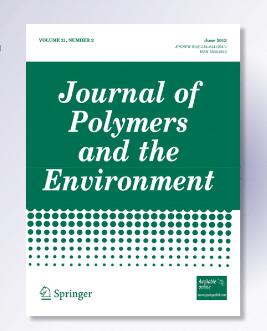In-situ Preparation of Highly Efficient Antibacterial Modified Pectin Using Zeolitic Imidazolate Framework
Abstract
With rising concerns about antibiotic resistance globally, exploring innovative antibacterial strategies is vital for public health. This work aimed innovatively to improve the biological efficacy of pectin (Pec) hydrogel beads by synergistically utilizing an antibacterial zeolitic imidazolate metal-organic framework (ZIF-8) and tetracycline (TC). ZIF-8 was incorporated at various concentrations within the hydrogel matrix to end this using an in-situ synthesis technique. TC was also pre-loaded into Pec hydrogel beads to further improve their antibacterial features. The application of diverse analysis techniques validated the successful fabrication of nanocomposites. In-vitro Zn2+ and TC release were considered by simulating the human digestive system, indicating a sustained and controlled release rate during 8 h (pH 1.2:6.8:7.4 = 20%:20%:60%). Antibacterial tests displayed inhibition zones of 14 ± 0.5 mm and 12 ± 0.5 mm against Escherichia coli and Staphylococcus aureus bacteria. Additionally, the MTT assay displayed potent cytotoxicity (> 70% cell viability after 48 h) for the human colon adenocarcinoma HT29 cell line. These results suggest that the developed nanocomposites have promising potential as an antibacterial bio-platform that is effective against resistant pathogens commonly found in the gastrointestinal tract.

 求助内容:
求助内容: 应助结果提醒方式:
应助结果提醒方式:


